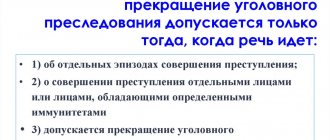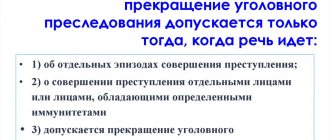A search is a process that is fraught with many nuances. It is carried out during the investigation of certain criminal cases. But you need to know about the grounds and procedure in advance. After all, it is not always possible to conduct a search. Moreover, it is important to comply with legal standards of behavior during this process. In fact, during a search, law enforcement agencies invade someone else's home. If they do not comply with the rules and conditions prescribed in Art. 182 of the Code of Criminal Procedure, there is a direct violation of your rights to integrity. To prevent this from happening, you have to study the country’s legislation in all its nuances. What you should pay attention to? How is the search carried out? On what rights is this done?
Reasons
The first important point specified in Art. 182 of the Code of Criminal Procedure - grounds for conducting a search. Remember: no one has the right to just invade your home and inspect it. There must be a reason for the search. Otherwise, this is a direct violation of the laws established in Russia. A strong argument for conducting a search is the suspicion of the presence of important objects, documents, equipment, as well as weapons related to a criminal case in a particular home. The process is also possible if there are sufficient grounds to believe that a criminal is in the apartment. An important point: the purpose of the search may be to detect corpses and criminals on the territory. So, it is not only the suspicion of the presence of documents and objects important for the investigation that allows a search to be carried out.
What can be seized during search activities?
Conducting an urgent search allows you to seize or get an idea of the location of the following objects:
- Values. Such items may leave traces of a crime. These may be items that were obtained through theft.
- Dangerous substances, weapons, drugs that should not be in the person being searched, and he does not have any documents for their storage.
- Documents that serve as evidence of the guilt of the person being searched.
- People who have been kidnapped, or hidden corpses.
Decisions and regulations
It is worth paying attention to other points prescribed in Art. 182 Code of Criminal Procedure. The procedure for conducting a search is something that will have to be studied in more detail. Violating the established rules is prohibited.
You have the right not to allow an investigator or other law enforcement officer to conduct a search without a special order or court decision. They serve as the documentary basis for starting the process. The following is important: the one who will conduct the search must show the tenant the supporting documents he has before starting it. As already mentioned, we are talking about either a court decision or a decision of the investigator. The absence of these papers makes it possible to prevent someone who was going to search the apartment from entering the home. You also have the right to refuse access to the property if a request to show you the relevant supporting documents is refused.
What documents must law enforcement officers present to conduct a search?
A representative of law enforcement agencies must present an official identification document, a court order or an investigator (inquiry officer) order to carry out this action. Please note: if the person who carried out the search was not the one who made the decision, then he is obliged to provide an order to carry out the investigative action in question. Investigators (interrogators) are not required to provide copies of these documents to the person whose home is being searched, but you can politely ask them to photograph the papers.
World proposal
What else does Art. 182 Code of Criminal Procedure? The fact that before the search begins, the investigator must invite the citizen to independently hand over weapons and other things important for the investigation. For example, documents or valuables related to a criminal case.
If a citizen independently and voluntarily surrendered what was required of him, the search may not begin. The investigator decides at his own discretion whether to conduct it or not. After all, he has all the supporting documents. In principle, in practice, a search is still carried out if there remains a suspicion that a citizen staying in the home has hidden some evidence important to the criminal case.
Main objectives of the search
The search must be justified, so law enforcement officers can act only with the aim of achieving solutions to such problems as:
- The search is carried out only in order to find the weapon with which the crime was committed; documents or money may also be confiscated.
- A search is being conducted to locate missing persons.
- Often the purpose of a search is to seize items that are prohibited for use.
Investigative authorities can not only seize objects, but also record hiding places.
Tolerance
The next important point specified in Art. 182 of the Code of Criminal Procedure is the procedure for gaining access to premises. The investigator has the right to search absolutely the entire apartment without exception. That is, he must be given access to all rooms. If the citizen refuses this, any door or lock can be opened at the discretion of the investigator. Only taking into account the absence of damage to property. In other words, the opening must occur without causing damage. Except for cases in which property damage is simply inevitable. Remember - no one has the right to just break into your house and sloppily open the premises and conduct a search. In practice, access to the entire apartment is usually completely provided to the investigator without any problems. Especially when you have nothing and no one to hide.
If the police are at the front door
Investigative actions are not allowed to begin at night, from 10 pm to 6 am. The exception is urgent cases when the right to night rest can be ignored (Article 164 Part 3 of the Code of Criminal Procedure).
Make sure the police are at the door! After a series of calls and knocks on the front door, the uninvited guests announce that they are the police, who have arrived at your address to conduct a search. Inform them through the door (don’t open it) that you are calling a police squad to verify that law enforcement officers have suddenly arrived. And only after that let anyone into the house.
Keep in mind that if law enforcement officers have permission to search your home, they have the right to open (break into) the front door (Article 15 of the Law “On the Police”). However, they will not open the door themselves - they will call either specialists from the Ministry of Emergency Situations or HOA locksmiths.
To call a police squad, call the nearest police station (if you know the number), or generally - 102 (city) or 102, 112 (mobile). Ask for help and explain that strangers calling themselves police are trying to enter your apartment (house). In modern conditions, it is relatively easy for criminals to dress in the uniform of law enforcement agencies, and there are quite real cases where robbers pretended to be police officers in an attempt to break into a home.
If possible, call a criminal lawyer (attorney), or better yet, ask your friends and relatives to do this - you don’t have much time. After calling, be sure and loudly notify the security forces standing outside the door that you are expecting the arrival of a police squad and as soon as the powers of the police search team are verified, you will immediately let them in.
This will be recorded on video, which is continuously monitored by the investigative team, and will justify preventing the police from entering your home during further proceedings. Residents of the apartment being searched will not be allowed to film investigative actions, guided by the secrecy of the preliminary investigation (Article 161 of the Code of Criminal Procedure).
In a situation where there is only a child (children) in the house and the police arrive for a search, the child is not required to open the door, since the law enforcement officers are strangers to him. Let the child warn (loudly) through the door that there are no adults and he is alone. The investigator will offer to call your parents (relatives) and provide your mobile phone number. The next actions of the notified adults are obvious - find and call a lawyer, come to the apartment and be present during the search.
In order to open and search an apartment in which only a child is located, the investigative team will need to call a representative of the guardianship service and the administration, if the child is of school age, a school teacher who knows him. Such preparation will require a lot of time, but parents still need to hurry - they cannot leave the child alone in the searched home.
Keep in mind that members of a search team conducted in the home of the parents or spouse of a citizen undergoing a criminal investigation may insist on indicating the current location of the suspect if this is unknown to the investigation. However, respondents have the right to refuse to inform the investigation by reporting their intention to use Article 51 of the Constitution of the Russian Federation.
The mystery of the investigation
Art. 182 of the Code of Criminal Procedure “Procedure and grounds for conducting a search” indicates that the investigator is obliged to maintain the secrecy of the process. More precisely, his responsibilities include taking measures for this.
What is it about? That the investigator must take all measures to ensure the non-disclosure of the citizen’s personal information. That is, if details of private life or personal/family secrets “come to light”, they should not be made public. This can also include details of other people's private lives. By law, the investigator must do everything to keep the information received secret.
Usually the search takes place in front of witnesses. The investigator has the right to prohibit everyone present in the apartment from communicating with each other, as well as with other persons, until the process is completed. This is quite normal practice. She's completely legal. No violations are observed in this situation. After all, negotiations can distract from a search or somehow interfere with it.
Seizure
During any search, an important point is the seizure of certain items that have any relation to the criminal case. This process must also be accompanied by compliance with some simple rules prescribed in Art. 182 of the Code of Criminal Procedure “Grounds and procedure for conducting a search.” Everything that is withdrawn from circulation (documents and things) is confiscated by the investigator without fail. Particular attention is paid to electronic media. They are confiscated according to special rules: with the participation of a specialist. Through a petition from the legal owner of the media or the owner of the information located on it, in the presence of witnesses, the investigator copies the data. For example, another technical means is used for this.
You cannot copy information when it may interfere with the investigation of a criminal case. Or if a specialist expresses the opinion that transferring data can damage it or change it in some way. That's how difficult it is. Please note that owners of electronic media or information on them are given copies made in the presence of a specialist. An appropriate entry about this must be made in the search protocol.
Package
The order of the process requires compliance with many nuances. The fact is that after the search, the seized objects, documents and valuables are shown to witnesses, as well as to everyone present in the room. If necessary, all this is packaged and sealed. To confirm the process, the signatures of those present during the search are affixed. Usually these are witnesses and apartment residents. According to Art. 182 of the Code of Criminal Procedure, judicial practice indicates that in almost 100% of cases it is necessary to pack and seal each piece of evidence or other seized item, sealing it all with the signatures of those present. This technique will help avoid accusations of forgery or changing the data/package of things. Therefore, the investigator is recommended to seal and pack all items that are not too large.
Participants
Art. 182-183 of the Code of Criminal Procedure of the Russian Federation indicate the peculiarities of conducting a search, as well as the seizure of objects and things. According to established standards, these processes must be attended by persons whose home is being searched, or adult citizens who are family members of a person living in the searched territory. To confirm the actions of the investigator, witnesses are invited - strangers “from the street” who are not related to the criminal case. The law allows the presence of third parties on the territory of the searched apartment during the search process. Or rather, defenders or lawyers of people living in a given territory. Other citizens are not allowed. As already mentioned, sometimes the investigator may even prohibit communication with third parties until the search is completed.
Protocol
During a search, a protocol must be drawn up. The rules for writing it are regulated by Articles 166-167 of the Criminal Procedure Code of the Russian Federation. It is necessary to pay attention to what data is entered into the document. The circumstances and locations of discovery of seized items, valuables and documents must be recorded here. It is mandatory to indicate exactly how things were received: the citizen gave them himself or forcibly. For example, they can be found during a home inspection.
Everything that is planned to be seized must be indicated in the protocol. Moreover, with all the details and characteristics: estimated cost, measures, weight, individual characteristics. Without an accurate description of the items, you cannot pick them up. What is not indicated in the protocol cannot be arbitrarily seized by the investigator. This is a violation of the search procedure.
If during the trial anyone attempted to conceal or destroy important data or items related to the criminal case, they must be recorded in the protocol. As you might guess, also indicating all the nuances of the incident. The measures taken to eliminate the event are recorded in the protocol by the investigator. This is exactly what the article says. 182 of the Code of Criminal Procedure of the Russian Federation (with and without comments).
After the search is completed, there is one more thing that needs to be done. The investigator is obliged to give a copy of the protocol of the process to the tenant in whose house it was carried out. Or the document is given to other adult members of his family. When it comes to a search of a company or organization, the protocol against receipt is issued to the administration of the institution or its legal representative.
Comments
A search is a forced procedural search in a certain territory in order to detect the recording and seizure of documents, as well as items related to a criminal case. This also includes the discovery of corpses and wanted people (criminals).
Commentary to Art. 182 of the Code of Criminal Procedure of the Russian Federation indicates that the grounds for conducting a search can be considered sufficient information that somewhere (in an establishment or apartment, as well as other premises) there may be objects and documents significant for the investigation (valuables, living citizens, corpses, electronic carriers and so on). And also if there is a possibility of complete or partial destruction of the above items or their concealment.
Commentary on Article 182 of the Code of Criminal Procedure of the Russian Federation
1. A search is a procedural forced search carried out in a certain place, which is in the legal possession of a certain person, in order to detect, seize and record objects and documents that may be important to the case, as well as wanted persons and corpses (Art. Art. 182, 184 Code of Criminal Procedure). A search should be distinguished from similar administrative actions: search of things, personal search (Article 27.7 of the Administrative Code), search of a vehicle (Article 27.9 of the Administrative Code), seizure of things and documents (Article 27.10 of the Administrative Code). The search is an investigative action, so it seems that it cannot be carried out in court.
2. The grounds for conducting a search are sufficient data that: a) in someone’s legal (title) possession (some place, some person) there may be objects that are important for the criminal case (objects and documents , living wanted persons or corpses); b) there is a danger (probability) of concealment or destruction of these objects.
3. The compulsory nature of the search during a search is explained by the presence of the danger of concealing the sought items and documents, which distinguishes it from an investigative examination, as well as voluntary extradition (Part 5 of Article 182 of the Code of Criminal Procedure). The search must be distinguished from inspection and according to its final goals. Although the purposes of the search partially coincide with the purposes of the inspection, they still differ from them. Like an inspection, a search is ultimately intended to detect, record and seize objects relevant to a criminal case. However, during a search, the objects of search are objects, documents (including instruments of crime and valuables), corpses, while during an inspection, traces of a crime (for example, fingerprints, etc.) can also be established. In contrast to an inspection, the purpose of a search may be to locate wanted living persons (Part 16 of Article 182). During a search, as well as during an inspection, the surrounding situation may be recorded, but not for the purpose of restoring the overall picture of the incident, but only to clarify the circumstances of the discovery, storage and seizure of the objects being sought. Optionally, a search may differ from an inspection and in location. A search is always carried out in a place or premises that is in the legal (title) <1> possession of a certain individual, legal entity or government body, while an inspection can be carried out both in title possession (for example, in a home) and in a place , which does not have a specific owner (for example, on the street of a populated area), or ownership that is untitled. Conducting a search in such cases is redundant and can be limited to inspection or verification of evidence on the spot (for example, when it is necessary to find and seize stolen property hidden by a suspect in an abandoned ownerless building in which he was hiding). In this case, doubts about the legal (title) nature of ownership should be interpreted in favor of the actual owner, who in this case is not inspected, but searched (provided that there is a danger of concealing the objects being sought).
——————————— <1> Title ownership is ownership based on any right. In contrast, non-title (actual) ownership is not based on any legal basis (see: Big Legal Dictionary. M.: Infra-M, 1997. P. 694).
In certain cases, non-title actual ownership as an exception may still give rise to certain legal consequences. Thus, the person who carried out the unauthorized construction does not acquire the right of ownership to it (titleless possession); the unauthorized construction is subject to demolition by the person who carried it out or at his expense (Part 2 of Article 222 of the Civil Code). However, under certain conditions, such a person may be recognized as having ownership of an unauthorized structure, therefore, other things being equal, it seems that a search should be carried out in an unauthorized structure.
Another situation may arise when the object acting as a storage facility in which a search must be undertaken is in someone’s property, but was removed from the owner’s possession as a result of criminally unlawful actions (for example, the theft of a ship or car). It seems that in this case an inspection should be carried out, not a search, since the sign of title ownership is also absent here (for example, when weapons and explosive devices are discovered and seized in a stolen car after the terrorists who used it are detained).
4. When making assumptions about the location of the desired objects for the purpose of conducting a search, not only evidence, but also non-procedural information (for example, the results of an operational investigation) can be taken into account. However, it should be remembered that the search affects key constitutional human rights, and therefore non-procedural information alone without the presence of criminal procedural evidence cannot justify its conduct (especially when the judge gives permission to search in accordance with Parts 2 - 4 of Art. 165 Code of Criminal Procedure). It seems that only evidence can justify (albeit at a probabilistic level) the assumption of who may have the desired objects, while the assumption of where exactly they are located, in a given room or area, can be based both on evidence, and on other non-procedural information, as well as simply on investigative experience. For information on the conditions for conducting a search, see com. to Art. 164.
5. The grounds and content of a search distinguish it from a similar investigative action - seizure. A search requires probable data about the item being sought and its location; the content of the search consists of search actions. To extract, you need to know exactly (reliably) what object is and where it is (Part 1, Article 183), so there are no search actions.
6. Literal interpretation of Part 2 of Art. 29 and art. 182 of the Code of Criminal Procedure allows us to come to the incorrect, in our opinion, conclusion that only personal searches and searches in the home are carried out by court decision (Part 3 of Article 182), and all other types of searches, without exception, do not require additional sanctions. At the same time, procedural norms and guarantees must be considered taking into account their goals, and in such a way that their literal or even formal-logical interpretation does not lead to obvious contradictions (absurdity). Thus, one should take into account the fact that a search is carried out on less grounds and more seriously restricts the rights of citizens than a seizure. At the same time, some types of seizure require a court decision (seizure of objects and documents containing state or other secrets protected by federal law - clause 7, part 2, article 29, part 4, article 183). But in the same cases, if we proceed from the literal interpretation of the law, the search is carried out without any permission or consent, moreover, not on a reliable basis (as is required for a seizure), but only on a probable basis. Then special authorization of the seizure would lose all meaning. Indeed, why would an investigator justify in court evidence the need to seize bank documents if he could instead search a credit institution and seize them without any permission? This obvious contradiction provides the basis for a broad interpretation of the rules contained in paragraph 7 of part 2 of Art. 29 and part 4 of Art. 183 Code of Criminal Procedure. According to this interpretation, forced seizure (not only during seizure, but also during search) of objects and documents containing state or other secrets protected by federal law, including bank secrecy, requires judicial permission. This interpretation actually coincided with the legal position of the Constitutional Court of the Russian Federation, set out in Determinations No. 10-O dated January 19, 2005, No. 427-O-O dated May 29, 2007. It should be noted that a number of federal laws provide for the need to obtain a court decision to conduct certain types of searches. These laws have priority over the Code of Criminal Procedure, since they are specifically designed to regulate separate groups of social relations. The Constitutional Court of the Russian Federation consistently points out the inadmissibility of conducting a search without judicial permission: a) in relation to a lawyer, including in residential and office premises used for legal practice (Definition of 08.11.2005 N 439-O; see: Part 3 of Art. 8 Federal Law of May 31, 2002 N 63-FZ “On advocacy and the legal profession in the Russian Federation”); b) in relation to items and documents containing audit secrets (Definition of the Constitutional Court of the Russian Federation dated March 2, 2006 N 54-O; See: Article 9 of the Federal Law dated December 30, 2008 N 307-FZ “On auditing activities”).
7. Voluntary release of an item before the start of search operations has the legal significance of an evidentiary fact: a) active repentance (as a basis for termination of the case under Article 28 of the Code of Criminal Procedure as a mitigating circumstance), if the person who issued the item could still have disposed of it differently (destroy the drugs) <1 >; b) refuting the version of the planting of the object during the search; c) confirming conscious possession of this item. According to the notes to Art. 222 and art. 228 of the Criminal Code of the Russian Federation (as amended on December 8, 2003) does not recognize the voluntary surrender of drugs or weapons during a search and, therefore, does not exempt from criminal liability. However, it should be taken into account that voluntary surrender may begin before the search and lead to release from criminal liability, regardless of the method of actual seizure of weapons or drugs. For example, a citizen tells the police over the phone about his desire to voluntarily surrender his weapon, which is then confiscated during a search. Judicial practice establishes the obligation of investigative bodies to provide the opportunity to the accused (suspect) to voluntarily hand over weapons or drugs so that he can take advantage of the provisions of the criminal law, according to which the person who voluntarily gives up weapons is exempt from criminal liability <2>;
——————————— <1> See: paragraph 19 of the Resolution of the Plenum of the Armed Forces of the Russian Federation dated June 15, 2006 N 14 “On judicial practice in cases of crimes related to narcotic drugs, psychotropic, potent and toxic substances " <2> See: Resolution of the Presidium of the Armed Forces of the Russian Federation dated March 26, 2003 N 969p02.
8. During a search, items that are completely prohibited for circulation (withdrawn from circulation) are additionally confiscated - Part 2 of Art. 129 of the Civil Code, and things whose circulation is limited may also be confiscated (Part 2 of Article 129 of the Civil Code). These items are confiscated without proper permission to possess them.
9. A feature of the search is the requirement to ensure the mandatory participation in it of the person in whose premises the search is being carried out, or adult members of his family. According to the meaning of the Code of Criminal Procedure, the owner of the object being searched (and not just the premises), or his representative (analogous to Part 6 of Article 177 and Part 15 of the Comrade Article), or persons living in the dwelling are invited to participate in the search. Failure to comply with this requirement, if there is an opportunity to fulfill it, is a significant violation of the procedural law (Part 3 of Article 7) and entails the inadmissibility of the evidence obtained <1>. In emergency situations, owner participation cannot be ensured. The Code (Part 6 of Article 177 of the Criminal Procedure Code) only provides for a record of this in the protocol. More successful was a similar norm of the Code of Criminal Procedure of the RSFSR (Part 2 of Article 169 of the Code of Criminal Procedure), which allows for the invitation of a representative of a housing maintenance organization or local government. It seems that at the level of recommendations it is advisable to use it at the present time. The investigator does not have the right to refuse the presence of a defense attorney (Clause 5, Part 1, Article 53 of the Code of Criminal Procedure) or the lawyer of the owner of the object being searched during the search. Moreover, to ensure the admissibility of the search results, it is advisable for the investigator to involve a defense attorney or lawyer in the case. In this case, the requirements for the surprise of the search may well be met (the defense attorney is invited to the investigator’s office at a certain time to participate in some investigative actions, only after the search begins he only learns that this is a search). Taking into account the Resolution of the Constitutional Court of the Russian Federation of June 27, 2000 N 11-P in the Maslov case, a person against whom a search is carried out with the aim of convicting him of committing a crime has the right to defense, since he is in the position of a suspect in the constitutional sense of the word. Therefore, his lawyer must have all the rights of a defense attorney.
——————————— <1> See: Resolution of the Presidium of the RF Armed Forces N 969p02 in the Protasov case.
10. If damage to property during a search raised doubts about the reliability of the evidence obtained or was a means of illegally influencing the suspect or accused (compelling him to testify under the threat of damaging property), then it entails the inadmissibility of the evidence obtained.
11. A special guarantee of respect for the rights and legitimate interests of citizens during a search is the possibility of appealing the decision to conduct a search and its results directly to the court, which was directly noted by Resolution of the Constitutional Court of the Russian Federation of March 23, 1999 N 5-P. For more information, see com. to Art. Art. 125, 165.








